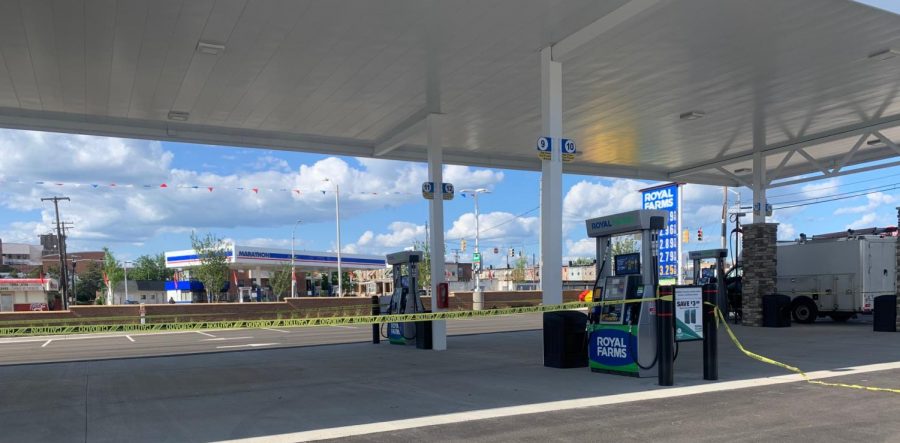Panic Over Gas Shows A Scary Truth about Humanity
Gas stations in Baltimore started running out of gas last Wednesday due to panic buying as a result of the Colonial Pipeline attack.
May 20, 2021
On May 6, the largest gas pipeline, Colonial Pipeline Co, was the victim of a cyberattack that shut down the pipeline until May 12. The pipeline runs from New Jersey to Texas. Though the public was reassured it would be restarted as soon as possible, people still erupted into panic, forming long lines at gas stations up and down the East Coast and causing stations across several states to run out of gas, not as a result from the cyberattack as much as from people panic buying gas.
On Tuesday, May 11, stations were selling two to three times their normal amount of gas as people were not only filling up their cars but as many gas cans as they could pile into their trunk. The panic response with the pipeline hack shows how humanity is terrified of the idea of scarcity. Scarcity is not having enough or running out of resources and in this case, gasoline.
When we hear about a situation that we consider as a threat to our resources, the majority will do anything they can to get what remains just to be prepared for the unknown future. This reaction is about more than preparation though, it is about comforting the fear of not being able to survive. Scarcity is such a massive fear because humanity sees it as an end to their survival.
Humanity’s fear of scarcity not only leads them to buy more resources than they need, but it also tests their sense of humanity itself. Would does it say about someone if they buy everything they could, leaving others with little to no resources to have, and was does it say if you only take what you need and leave some for other people to have?
From the pipeline hack, with the focus being on all those who bought everything for themselves, it demonstrated that selfishness that exist in humans when faced with fear. The fear of scarcity and selfishness correlates due to the fear of not having enough resources to survive, making one only considerate of themselves and doing everything they can to take as many resources as possible.
The pipeline hack sadly showed that we do not know how to handle a crisis. It was a prime example of how selfish and greedy people can really get. It also shows how privilege people are. Instead of just waiting it out to see how long the shortage was going to last people panic.
We saw the same thing with toilet paper last Spring! It’s like when people hear the word shortage they go into apocalyptic mode. People were buying up so much gas to go where exactly? We are still in a pandemic, so many people are still unemployed or working at home so where exactly where they going to use all this gas?
This also showed privilege at work. The only people that can stock up on resources for a long duration would be those that have the wealth to do so. In the case of gas, if there was a major longer stretch of a shortage, then those who rely on public transportation or couldn’t buy in advance would have been left with no way to get to work or the store for other needs.
The pipeline hack is an example of how perceived scarcity affects human psychology. When an item becomes less abundant, we place a higher value on it. America did it last year with toilet paper, now we did it with gasoline. The irony lies in the fact that the main cause of the scarcity of gas/price increases in some areas isn’t the pipeline hack, its people buying 2-3 times the amount of gas they actually need. If we all just remained calm, then a lot of this situation could’ve been avoided. We are so quick to panic and become selfish in situations like these that it just makes life harder for everyone else.
Watching people’s reactions last week was an alarming dose of reality. The thing that is scary is it shows if there were something really serious we wouldn’t be in a good position to handle it together as a community. Our sense of humanity crumbled over something minor so it’s scary to imagine if it were something much worse how everyone would turn on each other and rather than work together to get through a crisis it would be every person for themselves.

